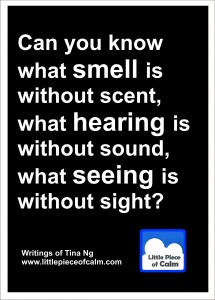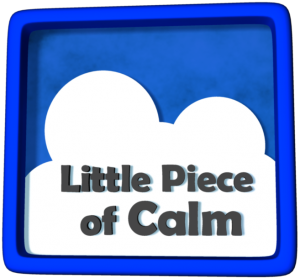 I’ve had a cold for about a week now. My body went through all the usual symptoms of a cold –body aches and sore muscles, runny nose, sore throat, weepy eyes, blocked head, and the general feeling of just wanting to stay in bed with a hot water bottle instead of braving the world outside.
I’ve had a cold for about a week now. My body went through all the usual symptoms of a cold –body aches and sore muscles, runny nose, sore throat, weepy eyes, blocked head, and the general feeling of just wanting to stay in bed with a hot water bottle instead of braving the world outside.
I also lost my sense of taste and smell for a few days too. This has happened to me before too, and on both these occasions I was invited to dinner at posh restaurants. I accepted the invitation, because people’s company is always more important than the food.
So there I was sitting in this beautiful restaurant with a nice view, looking at the menu in front of me. I chose a dish, already anticipating the taste in my mouth.
The food came, and I watched my companion take his first bite, followed by signs of approval. My mouth watered, and I took a bite. What I tasted though was something salty, warm, soft parts then crunchy. I couldn’t taste the intricacies of the herbs, or the intensity of the flavour. It all tasted mild and unappealing. I asked my companion how his dish was, as if his words allowed me to enjoy the meal vicariously through him.
While eating this way, I reflected on this experience. What I was experiencing was the bare essentials of taste – salty, sweet, bitter, and sour. I could experience the temperature of the food, the texture of whether it’s soft or hard, but nothing too exciting. It was hard to become attached to those bare essentials. Food became simply food, eaten to sustain this body. The exciting flavours were additional extras, which went only to the pleasure of the experience.
This can be applied to our other senses. Sight is merely seeing; the pretty colours are additional extras. Sound is merely hearing; music is an additional extra. Scent is merely smells; aroma is an additional extra. Touch is merely feeling; comfort is an additional extra.
This distinction is not to denounce these additional extras, but to acknowledge that these are additional extras that make life pleasant, not essential. For those practising non-attachment and living with fewer desires, this distinction also makes it easier for us to not become too attached and consumed in chasing after these additional extras. By analysing our experience in this way, the additional extras become just that: extras. We come to appreciate the bare essentials, and become much more grounded in our happiness that doesn’t require us chasing after the bigger and better ‘additional extra’.
Another thing I realised was my sense of taste actually was still somewhat intact, it was just obscured by my blocked nose which left me with little ability to smell. This emphasised just how connected our senses are with one another, and again for those practising non-attachment, it’s important to stay vigilant at all the sensory doors and not just one.
So the practice for this week is to notice and connect with the bare essentials of our senses and our life generally. Get to know again what taste is as it is without being lost in the additional extras. Get to know what smell is, what touch is, what sounds are, and what sights are. Often we only notice the additional extras, and we dismiss the bare essentials as ‘bland’ or ‘unimportant’. Yet on closer investigation, we come to see that the bare essentials are closest to the core of our being and it’s the path to contentment through its simplicity. Becoming acquainted with the bare essentials may become your step towards understanding the workings of your body and mind.
For meditators, you may find this experience becomes obvious through your meditation and/or mindfulness training. You may find this exercise as quite similar to the instruction to watch your breath and watch the unfolding of the nature of this body as you do so.
Whatever the practice, I hope you come to understand this body and mind, and preferably without the need to go through a cold.

 Posts RSS
Posts RSS


This is a wonderful piece of writings that helps me to understand the core of the Dharmma. Thank you so much for sharing Tina Ng. With Metta, Tuan.
Thank you Tuan